#zaynab qadir
Photo



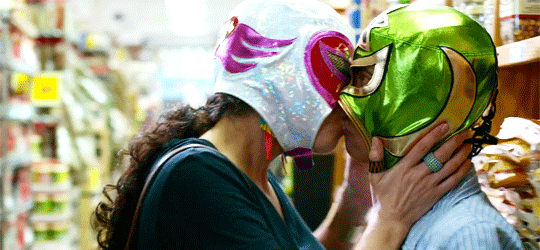
Signature Move (2017)
#signature move#alma#zaynab qadir#sari sanchez#fawzia mirza#femslash related stuff#muslim lgbt#my favorite tag to use nowadays#for actual content I mean#not the egypt thing D:#also she is so right#I can objectively say pakistani mangos are the best in the world#we are not a people who are eager to compliment our country#but in this...the best#easily#also we have the best cricket bowlers#but that's it#also our fashion is pretty great
4K notes
·
View notes
Link
Via Youtube: Tawheed on 18th Oct, 2020 V2:98- Ruling on believing that Awliya benefit and harm [Noor ala alDarb, Shaikh ibn Baz, Vol2] Language: English Q: I gained considerable knowledge by listening to your program, especially when you mentioned that the Awliya (pious people) as well as all the deceased cannot benefit people with anything. However, when I told my family about it they named me a Kafir (disbeliever). They added that the Awliya will harm me as they saw them in their dreams blaming me. Could you please advise people who believe in many superstitions that are widely spread in almost all Arab countries? [Vol. 2, Page No. 356-359] A: I advise all Muslims to fear Allah (Glorified and Exalted be He) and know that all happiness and salvation both in this world and the Hereafter are attained by following the Prophet (ﷺ) and his way. Indeed, our Prophet (ﷺ) is the master of all the Awliya and the best of them. Prophets are the best Awliya and next to them are the Sahabah (Companions of the Prophet). The Awliya are people of righteousness, Istiqamah (integrity), and total obedience to Allah (Exalted be He) and His Messenger (ﷺ). Hence, loving the Awliya for the sake of Allah (Exalted be He) and imitating their good and righteous deeds are integral parts of the Din (religion). Nevertheless, it is not permissible that a person attaches themselves to the Awliya, worships or invokes them other than Allah, or seeks their protection or help by saying for example: "O my master "Abdul-Qadir! Protect me!" or, "O Messenger of Allah! Protect me!" or, "O `Aly! Protect me!", "... Grant me victory!", or, "O Husayn!, O Fatimah!, O Lady Zaynab!", and so on. All the foregoing is not permissible as Dua`a' (supplication) is to be made to Allah Alone. He (Glorified be He) says: Invoke Me, [i.e. believe in My Oneness (Islamic Monotheism) and ask Me for anything] I will respond to your (invocation). And: *And when My slaves ask you (O Muhammad ﷺ) concerning Me, then (answer them), I am indeed near (to them by My Knowledge). I respond to the invocations of the supplicant when he calls on Me (without any mediator or intercessor). And: Is not He (better than your gods) Who responds to the distressed one, when he calls on Him, and Who removes the evil And: And whoever invokes (or worships), besides Allah, any other ilah (god), of whom he has no proof; then his reckoning is only with his Lord. Surely! Al-Kafirun (the disbelievers in Allah and in the Oneness of Allah, polytheists, pagans, idolaters) will not be successful. Thus, Allah (Exalted be He) calls such people Kafirs because they invoke others beside Him. In addition, Allah (Glorified be He) says: And the mosques are for Allah (Alone): so invoke not anyone along with Allah. And: Such is Allah, your Lord; His is the kingdom. And those, whom you invoke or call upon instead of Him, own not even a Qitmir (the thin membrane over the date-stone). If you invoke (or call upon) them, they hear not your call; and if (in case) they were to hear, they could not grant it (your request) to you. And on the Day of Resurrection, they will disown your worshipping them. And none can inform you (O Muhammad ﷺ) like Him Who is the All-Knower (of everything). Allah (Exalted be He) makes it clear that the Awliya who are invoked other than Him do not hear the calls of their worshippers as they have already passed away and they are busy with their own affairs with Allah (Exalted be He). However, if they were to hear, they could not grant people's requests as forgiving sins and driving away grief are granted only by Allah (Glorified and Exalted be He). He (Exalted be He) then says: And on the Day of Resurrection, they will disown your worshipping them. It is worth mentioning that invoking the Awliya is described as an act of Shirk (associating others with Allah in His Divinity or worship) as it was an attribute of Kafirs in the Ayahs (Qur`anic verses) quoted previously. Seeking help and protection from the deceased and those who are absent, while believing that they have hidden power and can hear from afar, is false and equivalent to Shirk. Every Muslim has to avoid indulging in such practices. Every Muslim has to know that the beliefs of the ignorant to the effect that the Awliya or prophets can benefit or harm, that they - after passing away - protect people who seek refuge with them or grant them their requests, i.e. forgiving theirs, curing the sick, and so on, are all different acts of ignorance and Shirk. Indeed, Allah (Exalted be He) sent the Prophet (ﷺ) to denounce such beliefs and call both Arabs and non- Arabs to Tawhid (belief in the Oneness of Allah). The Prophet (ﷺ) called the Arabs, who used to worship idols, Awliya, trees, and stones, to abandon all... https://binbaz.org.sa/fatwas/7040/%D9%86%D8%B5%D9%8A%D8%AD%D8%A9-%D9%84%D9%85%D9%86-%D8%AA%D8%B4%D8%B1%D8%A8-%D8%B9%D9%82%D9%84%D9%87-%D8%A7%D9%84%D8%AE%D8%B1%D8%A7%D9%81%D8%A7%D8%AA-%D9%88%D8%A7%D9%84%D8%A8%D8%AF%D8%B9 #Islam #Quran #Hadith #Sunnah #Fatwa
0 notes
Text
Day 7- God is Greatest
Farouk hitched his backpack a little tighter, snapping the buckle across his chest with mild relish. His hard shell suitcase wheeled along beside him, wheels click-clacking lightly across the tiled floor of the airport. Stuffed toys from Disneyland for Aziza, and Isa, new clothes for Khalid and Umar, and an extra special birthday present for Mama meant the suitcase was extra heavy.
He hadn’t packed any of his own clothes, instead he had a change of underwear and a few shirts, rolled neatly in his backpack. He had packed minimally, wanting to make the secondary screening selection process as easy and uncomplicated as possible. The last time Farouk had been in one of those rooms, he had missed a connecting flight, and showed up late to his Orientation at UF. He had been detained at JFK, after a red-eye from London. Since then, he had learned to pack light. Complying with TSA guidelines, Farouk packed no liquids. No toothpaste, no hand-sanitizer, no soap. Not even hair-gel! Disposable toiletry kits could be easily acquired past the gates anyway. His hair was neatly cut, and his face clean shaven. Non-threatening and mildly middle-eastern. His ticket, passport (with valid student visa) and wallet were all on hand in his handy traveller’s pouch.
Travelling through Florida was never his idea of a good time, arguably, it was no one’s idea of a good time. Often he had heard his friends—both American and non-American complain loudly that Florida was perhaps the worst airport in the continental United States. Farouk had travelled through it no less than three times. This flight, bound for London, would be his fourth. Each time he had been cast into the fray of hungry, jetlagged and multilingual strangers. Sun-tanned blondes, freckled with the beginnings of skin cancer chattered noisily with their girlfriends. Dark-haired, shapely Latinas and their sunken eyed, hulking boyfriends rattled on in Spanish. A sudden contingent of Chinese, brought a wave of Cantonese and unfamiliar sounds and smells. Every now and then, a dark-skinned Cubano, a Caribbean brother or a hijabi sister, would make eye contact, from under dark, mysterious brows, and give a silent nod of recognition. The secret nod. Like an unspoken “As-salamu Alaykum!”
The Prophet admonished men of faith, to be brazen and proud, not to hide their love for Allah. And yet, here they were, camouflaging themselves, that they could live the lives that He had planned for them. It was almost funny, that those who bore the most blessed of names; Umars, Khaliqs, Abdullahs, Yusuffs, Maryams, Zaynabs Ruqayyahs and even Khadijas—they were often those most likely to be selected for additional questioning and interviewing. Missing flights,and having to give account of their lives in the most minute of details to the stern, faceless uniformed men and women who in that moment, held the flaming sword over their respective futures. It was undignified, but “the wise pick their battles.” and Farouk, was wise.
As he waited in line, for check-in he shuffled his playlist idly, from light hearted nasheeds, to the beat heavy, Dirty South Trap music that his roommate Treshawn had introduced him to. Sami Yusuf, and Ahmed Bukhatir melded with Desiigner and Rich Homie Quan,as he slowly but surely advanced to the counter. And then unexpectedly, a sermon, by Mufti Menk. This was not supposed to be on the playlist. It was an old sermon, from many years before. The Mufti was younger and his voice had not yet taken the calm confident resonance that Farouk was used to listening to.
“Brothers, Sisters, As-salamu Alaykum!” Wa-alaykum as-salaam.
The sermon was about the story of Umar ibn Qattab and the tale of how he came to be one of the champions of the Prophet. Farouk had heard it before, and enjoyed it too. It was epic, and full of action and drama, with an ending that would impress even a kafir. It’s message was sound too. By the grace of Allah, even the bitterest of enemies could become the greatest of companions. Pausing the sermon, Farouk handed his suitcase over to the beautiful, but tired looking counter-attendant, and filled out the necessary documentation in case his baggage was misplaced. She checked his ticket and passport, Student ID, and smiled curtly as she read his name aloud, “Thank you and enjoy your flight, Mr. Farouk Fa..Fakouri?”
Farouk smiled appreciatively and resumed his sermon. The booming voice of the young Mufti echoing from the bass-boosted buds in his ears. As he walked, he could feel the eyes of other travelers and counter attendants on his back. They knew he was the wrong ethnicity to be flying, and whether they wanted to or not, their ingrained fears, had already begun to surface. He self-consciously adjusted his backpack again, and tried to walk as casually as possible to the Departures waiting area.
Soon, he would be home. Sitting at his mother’s table, laughing with his family, doing salaat with his brothers, and fighting with his father for the second biggest piece of lamb in the biryani. Thoughts of home and his family, intertwined with the story of Umar ibn Qatab, as he waged war against the Prophet. Mufti Menk was in the middle of explaining the importance of following one’s deen when the first shots rang out. Farouk had never heard real gunfire, not even back home in Beirut. The harsh explosions pierced the sounds of the Mufti’s half-spoken, half-sung verses from the Quran. Then, screams, as people began running in terror in every direction. As Farouk looked around him, in the distance, he could make out the figure of a man, pointing something metallic and deadly in his direction. And the Mufti’s voice continued on, as the light flashed from the mouth of that metallic thing.
“Brothers and Sisters, if it imperative that we follow our deen. As all the great Companions did. Regardless of where or when we might be. Deen never changes. And at the day of Judgment, Yawm al-Qiyamah, when Allah, looks upon you, and recounts your deeds even the smallest of things, let your deen show upon your right hand, all the good and just things that you have done, in His name. La ilaha illa’llah, wahdahu la sharika lah, lahu’l mulku wa lahu’l hamd, wa huwa ala kulli shay’in qadir. Allahu Akbar!”
#islamophobia#writing#writingchallenge#politics & current events#fiction#creative fiction#iaintevenmuslimtho#peace
5 notes
·
View notes
Photo
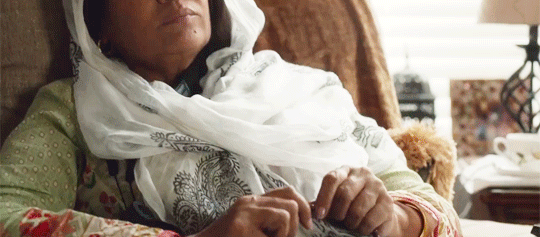
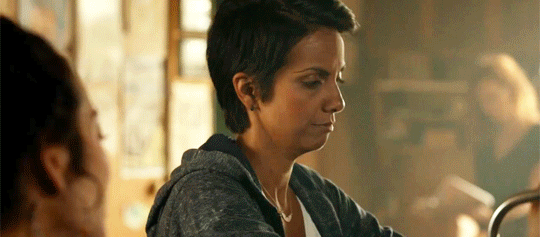


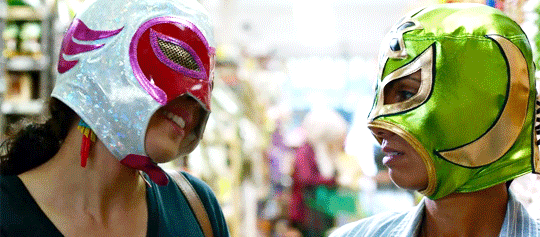

Signature Move (2017)
#signature move#zaynab qadir#alma#parveen qadir#fawzia mirza#sari sanchez#shabana azmi#femslash related stuff#muslim lgbt#!#well#this looks great#like a desi saving face#where both the budding f/f romance as well as the main's relationship with her mother is at the center of the movie#how great to see shabana azmi in it#passing the torch as it were
111 notes
·
View notes
Photo

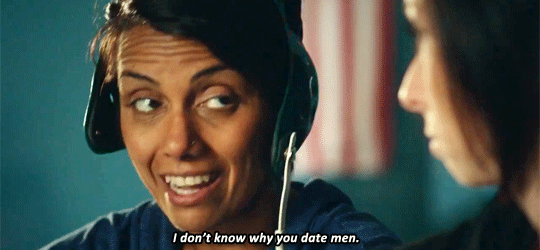


Signature Move (2017)
#signature move#zaynab qadir#jayde#fawzia mirza#audrey francis#femslash related stuff#muslim lgbt#this feels like it's light enough even with the heaviness
83 notes
·
View notes
Photo



Signature Move (2017)
27 notes
·
View notes